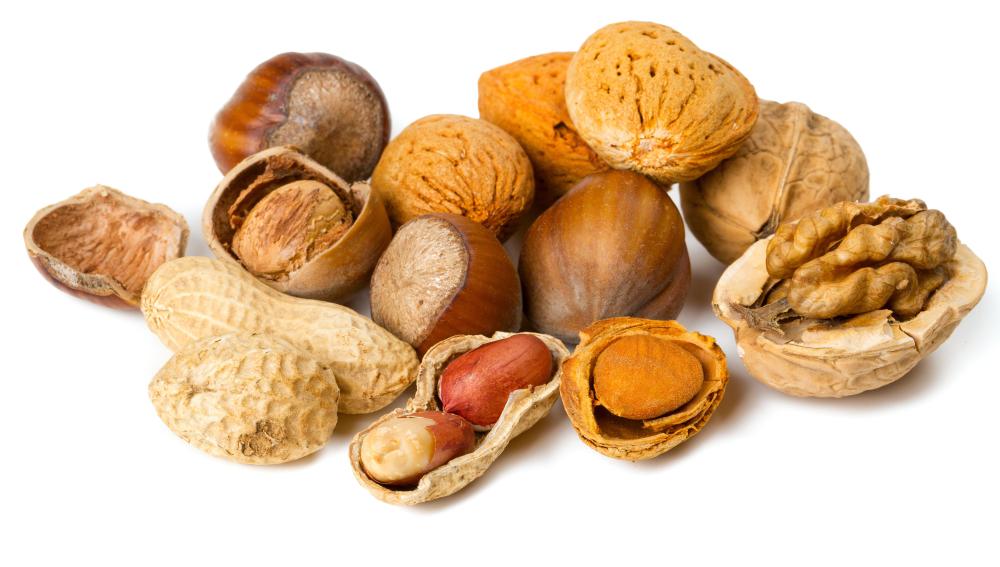At TheHealthBoard, we're committed to delivering accurate, trustworthy information. Our expert-authored content is rigorously fact-checked and sourced from credible authorities. Discover how we uphold the highest standards in providing you with reliable knowledge.
What Is a Therapeutic Diet?
A therapeutic diet is a diet that is formulated usually by nutritionists, dieticians, and medical doctors to aid in the healing of the body from certain types of injuries and diseases. Therapeutic treatments involving food are also prescribed for medical conditions that affect the psychological state of the individual as well, such as weakness caused by anorexia, or a loss of appetite due to depression, loneliness, and other mental states that can discourage healthy eating. More common conditions that may require a therapeutic diet include the loss of teeth with age, which may necessitate a diet of soft foods, or a calorie-, fat-, and sodium-controlled diet to treat such routine conditions as being overweight, having high cholesterol levels, or being borderline diabetes.
Severe health conditions often require a therapeutic diet recommended for the short term. A good example of this is the liquid diet that is often prescribed immediately after surgery or a heart attack. Liquid diets are also recommended for a variety of acute digestive problems and to reestablish the normal water content of the body that can be reduced due to chronic diarrhea or vomiting. The main components of a liquid diet are often a combination of fruit juices, low-sodium soups, and foods that can be pureed or brought to a semi-liquid state such as boiled vegetables, yogurt, and ice cream. Soft diets for individuals with a limited ability to chew or digest food are similar in nature and require forgoing foods such as tough meat, fibrous grains and fruits, and nuts that are difficult for the body to break down if swallowed whole.

Nutrition therapy can become a permanent part of the diet in conditions such as the development of artherosclerosis, which requires a low-fat and low-cholesterol diet, restricting the consumption of fried foods and dairy products. Conditions like hypertension and heart disease may also require a lifelong diet low in sodium content to lower water retention in the body. A renal diet to protect the kidneys requires low levels of protein, potassium, and sodium, which can contribute to renal failure.

Unique therapeutic diet menus also exist for rare conditions such as the Anti-Candida diet prescribed to prevent the growth of Candida albicans, a yeast that is problematic for people with food allergies or who need hypoallergenic living conditions. Diets also exist as preventative medicine like the Anti-herpes diet, which discourages consuming the amino acid arginine which can help herpes viruses to grow, and encourages the consumption of lysine which inhibits it. The Anti-herpes diet, therefore, recommends eating a lot of meat, fish, and dairy products, and avoiding foods like corn, potatoes, nuts, and beans.

Specialized types of therapeutic treatments based on food also include the diabetic diet, where foods high in sugar must be avoided, and calorie-restricted diets that also limit the amount of high-sugar or high-fat foods that can be consumed. Often the opposite of these diets is the high-calorie diet which is prescribed for underweight individuals or those with hyperthyroidism, and patients recovering from cancer. A high-calorie therapeutic diet includes the consumption of more than the normal amount of protein and carbohydrates, and the avoidance of foods high in water content that fill up the stomach quickly, such as watermelon. High-fat foods are also not recommended for a high-calorie therapeutic diet, as they create a full feeling quickly and are slow for the body to digest.
AS FEATURED ON:
AS FEATURED ON:

















Discussion Comments
A diabetic diet may most properly be described as a diet low in carbohydrates. It probably will be lower in calories, because it avoids starches and sugars, but is not specifically low-calorie. Still, most diabetics do lose weight if they follow a sensible, low-carb diet and exercise regularly.
Many people who have had gastric bypass surgery are on a liquid diet for a few weeks after their surgery. Then, they have to eat very carefully so they get the maximum nutrition without disrupting the surgery's effects. That diet is usually a lifelong effort, if they are interested in maintaining their weight loss results.
Post your comments